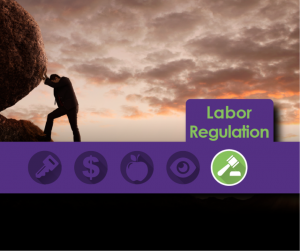By Caleb Taylor
ACRE Policy Analyst Alex Kanode was quoted in a recent article and wrote an op-ed in the Arkansas Democrat-Gazette discussing a recent change in how the state evaluates its licensing laws.
Act 600, also known as The Red Tape Reduction Sunrise and Sunset Act, passed both the House and Senate with no dissenting votes. It was signed into law by Gov. Asa Hutchinson on March 29th.
The law authorizes the Arkansas Legislative Council to review one-sixth of all licensing laws on an annual basis to see if there are less burdensome ways to protect Arkansans. Sen. Bart Hester said in “Professional licensing due a state review” published in the Arkansas Democrat-Gazette on June 3rd that he hoped the law would “lead to fewer licensed professions or a reduction in the time it takes to get licensed.”
From the Arkansas Democrat-Gazette:
Alexander Kanode, a policy analyst with the Arkansas Center for Research in Economics at the University of Central Arkansas, said Act 600 “is a great first step toward improving the lives of working Arkansans.” The newly created Occupational Licensing Review Subcommittee “is just a review process,” he said. “It will require vigilance by members of the subcommittee to ensure that it leads to meaningful reform.”
What other improvements were made to Arkansas’s occupational licensing laws by the Legislature during the 2019 session? In an op-ed entitled “Red tape reduced,” published in the Arkansas Democrat-Gazette on May 25th, Kanode outlines many of the important changes made during the session and how policymakers should proceed from here.
From the op-ed:
The other big reform was the Red Tape Reduction Sunrise and Sunset Act of 2019. This act gives Arkansans a pathway to future reform by creating sunset reviews. These are reviews of each individual license on a regular basis. Every year, the Arkansas Legislative Council will examine one-sixth of all licenses on a rotating basis and check whether there are less burdensome alternative regulations than licensing that will still protect Arkansans. If the license is necessary, the council will provide recommendations to streamline or improve application processes or reduce the burden of licensing requirements. The improvements made by sunset reviews would help people wanting to work in the licensed fields, but it would also help consumers across Arkansas. In ACRE Report “The Effects of Arkansas’ Occupational Licensure Regulations,” Snyder found that reducing Arkansas education and experience requirements to that of Mississippi would decrease prices across the board in Arkansas by 4.5 percent. How do sunset reviews get us there? These reviews are beneficial because they allow targeted changes for specific licenses. The best policy for barbers would not work as well for doctors. Regular reviews mean legislators will continuously examine requirements as circumstances change.”
You can read the report by Snyder referenced by Kanode in his op-ed here.
For more on this topic, check out our labor market regulation research page.

